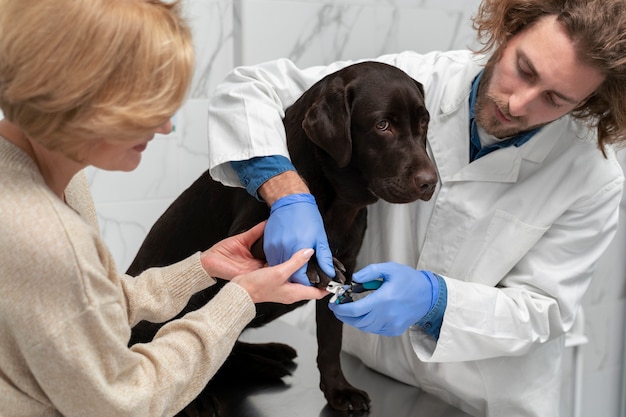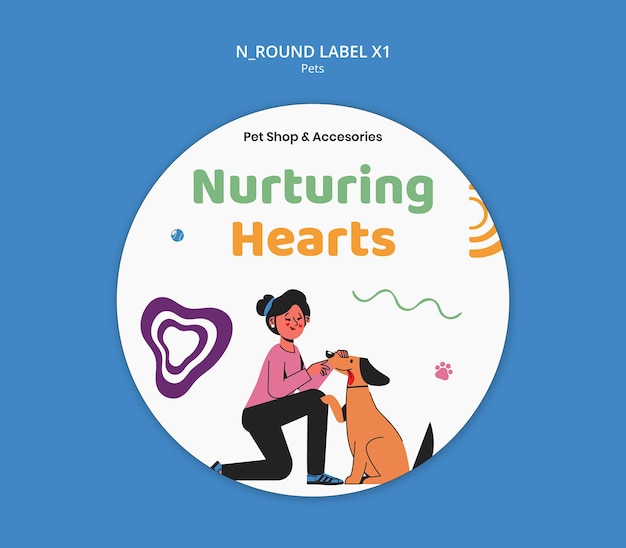Understanding Pet Orthopedic Surgery Options

Understanding Pet Orthopedic Surgery Options
When your pet suddenly begins to limp, struggles to rise, or seems reluctant to play, it can be both heartbreaking and confusing. Many pet owners in Jefferson and surrounding communities want to know what options exist to help their dogs or cats regain comfort and mobility when orthopedic problems arise. At Ark Animal Hospital, our veterinary team understands just how important it is for your pet to live an active, pain-free life. That's why we offer a comprehensive range of advanced pet orthopedic surgery services in Jefferson designed to address everything from hip dysplasia to cruciate ligament injuries, fractures, and more.
In this blog, we will help you understand when orthopedic surgery may be recommended for your pet, what causes common orthopedic conditions, and the types of treatment options available. We will also explain how you can support your pet’s recovery and when it’s time to schedule an appointment with our veterinarians. Whether you searched for a "vet near me" or are seeking specialized hip dysplasia treatment in Jefferson, you’ll find the answers and compassionate care you need at Ark Animal Hospital, conveniently located at 4211 Jefferson Highway, Jefferson, LA 70121.
If you’re concerned about your pet’s mobility or comfort, our orthopedic surgery services are here to help pets throughout Jefferson and the surrounding areas. Read on to learn more about how orthopedic care at Ark Animal Hospital can restore your pet’s health and happiness.
Recognizing Orthopedic Problems in Pets: Signs and Symptoms
Orthopedic conditions can affect pets of any age or breed, and their signs may come on suddenly or develop gradually over time. Key symptoms that could indicate your pet needs pet orthopedic surgery in Jefferson are persistent limping, trouble standing up or lying down, stiffness (especially after rest or first thing in the morning), reluctance to jump or climb stairs, difficulty walking or running, and visible swelling or deformity in a limb. In some cases, you might notice that your pet is less playful, seems withdrawn, or shows signs of pain when you touch a specific area.
For example, a young dog with hip dysplasia may begin to bunny-hop or favor one leg, while an older dog with a torn ACL might suddenly become unwilling to bear weight on a hind limb. Cats are often more subtle in their symptoms, preferring to hide when in pain or simply reducing their activity level. If your pet is showing any of these signs, it may be time to discuss potential surgical solutions like hip dysplasia treatment with our veterinarians.
When Should You Be Concerned?
While a single episode of limping that quickly resolves may not always be cause for alarm, ongoing lameness, pain, or obvious injury should never be ignored. If your pet’s symptoms are getting worse, they are unable to use a limb, or you notice swelling, it is important to seek veterinary care promptly. Early intervention can make a significant difference in your pet’s recovery and quality of life.
Understanding the Causes of Orthopedic Conditions in Pets
Many pet owners wonder why their dog or cat developed an orthopedic problem in the first place. Some conditions are the result of genetic predispositions or developmental issues, such as hip dysplasia, which is common in certain large dog breeds. Others may arise from traumatic injuries like falls, car accidents, or rough play, often leading to fractures or dislocations requiring specialized care. Over time, wear and tear on the joints—especially in active or overweight pets—can result in ligament injuries like cranial cruciate ligament (ACL) tears.
Patellar luxation, or knee cap dislocation, is another frequent cause of lameness, particularly in small breed dogs. Meanwhile, degenerative joint diseases such as osteoarthritis can affect pets as they age, leading to chronic pain and decreased mobility. In some cases, tumors or infections may also impact your pet’s bones or joints, necessitating more advanced surgical intervention.
Understanding these underlying causes is essential for selecting the most appropriate course of treatment, whether that means a fracture repair, ligament correction, or another orthopedic procedure. Our veterinary professionals will conduct a thorough evaluation, including physical exams and advanced imaging when needed, to determine the best plan for your pet.
Orthopedic Surgery and Treatment Options at Ark Animal Hospital
When conservative treatments such as rest, medication, or physical therapy are not enough to restore your pet’s comfort, surgical intervention may be recommended. At Ark Animal Hospital, our veterinarians offer a wide range of pet orthopedic surgery options in Jefferson, utilizing state-of-the-art techniques and equipment to help your pet recover.
Common procedures include surgical repair of cranial cruciate ligament (ACL) injuries, which is one of the most frequent orthopedic surgeries in dogs. This may involve stabilizing the knee joint using sutures or more advanced techniques depending on your pet’s size and activity level. For pets suffering from hip dysplasia, our team can discuss both medical management and surgical options, including FHO (Femoral Head Ostectomy), which can greatly improve mobility and reduce pain.
Fractures and dislocations are addressed using appropriate fixation devices, such as plates, screws, or pins, tailored to your pet’s specific injury. Our fractures and dislocations services ensure that even complex breaks are managed with expert care. For certain cases where limb salvage is not possible, amputation can be a compassionate solution, allowing pets to return to a comfortable, active life. Our team is also experienced in correcting patellar luxations, offering specialized knee cap dislocation surgery for pets who experience repeated dislocations.
Each surgery is followed by a personalized rehabilitation plan, which may include pain management, physical therapy recommendations, and regular follow-up visits. Our veterinarians will work closely with you to ensure your pet’s recovery goes as smoothly as possible, providing guidance every step of the way.
What to Expect During Your Pet’s Orthopedic Surgery Journey
From your initial consultation through recovery, we strive to make the process as comfortable and stress-free as possible for both you and your pet. During your visit, our veterinary team will explain the diagnosis, discuss all treatment options, and answer your questions. After surgery, we provide detailed home care instructions and schedule follow-up appointments to monitor healing and address any concerns.
Supporting Your Pet at Home: Recovery and Prevention
Helping your pet recover after orthopedic surgery involves a combination of rest, restricted activity, and attentive care. You will likely need to limit your pet’s movement for several weeks, provide prescribed pain medication, and monitor the surgical site for any signs of infection or complications. Encouraging gentle, supervised movement as recommended by your veterinarian can help prevent muscle atrophy and speed up healing.
Preventing future orthopedic injuries is also important. This may involve maintaining your pet at a healthy weight, providing joint-friendly exercise, and using ramps or non-slip surfaces in the home. For breeds prone to certain orthopedic conditions, early screening and preventive care can make a substantial difference. Discussing your pet’s lifestyle, nutrition, and activity level during regular wellness visits is a proactive way to safeguard their joint health.
When to Schedule an Appointment: Pet Orthopedic Surgery in Jefferson
If your pet is showing ongoing signs of pain, lameness, or mobility issues, do not wait to reach out for help. Conditions like hip dysplasia, ACL tears, and fractures require prompt evaluation, as delays can lead to worsening pain or permanent joint damage. At Ark Animal Hospital, we recommend scheduling an appointment as soon as you notice concerning symptoms, especially if your pet is struggling to walk, is vocalizing in pain, or has experienced trauma.
You should also contact our veterinarians if your pet’s recovery after an injury or surgery is not progressing as expected. Our veterinary professionals are always here to offer guidance, answer your questions, and provide the expert care your pet deserves.
Why Choose Ark Animal Hospital for Pet Orthopedic Surgery in Jefferson?
At Ark Animal Hospital, we are committed to delivering the highest quality pet orthopedic surgery in Jefferson and surrounding communities. Our compassionate veterinarians combine advanced surgical skills with a caring approach that puts both pet and owner at ease. We understand that the decision to pursue surgery can feel overwhelming, which is why we work closely with you to explain every option and create a treatment plan tailored to your pet’s unique needs.
Whether you are searching for hip dysplasia treatment in Jefferson or need an experienced veterinarian to address a sudden injury, our team is here to support you every step of the way. We are proud to be a trusted resource for pet owners who want the very best for their companions.
Take the Next Step: Schedule an Orthopedic Consultation Today
If your pet is experiencing joint pain, limping, or mobility issues, Ark Animal Hospital is here to help. Schedule an appointment with our veterinary team to discuss your concerns and explore the most effective pet orthopedic surgery options in Jefferson. We encourage you to contact us at (504) 834-0906 or visit our 4211 Jefferson Highway, Jefferson, LA 70121 location to get started. Our veterinarians are devoted to restoring your pet’s comfort and ensuring a smooth recovery.
To learn more about our advanced orthopedic surgery services or specific hip dysplasia treatment options, please explore our website or reach out to our team. If you have been searching for a "vet near me" who provides comprehensive orthopedic care, look no further than Ark Animal Hospital—your local partner for quality veterinary services in Jefferson and beyond.
This blog is intended for informational purposes only and should not be considered a substitute for professional veterinary advice. Please consult your veterinarian for an accurate diagnosis and personalized treatment plan for your pet’s unique needs.



















